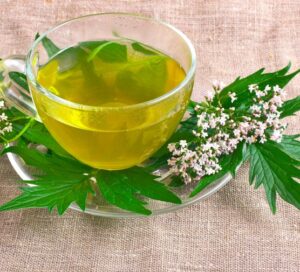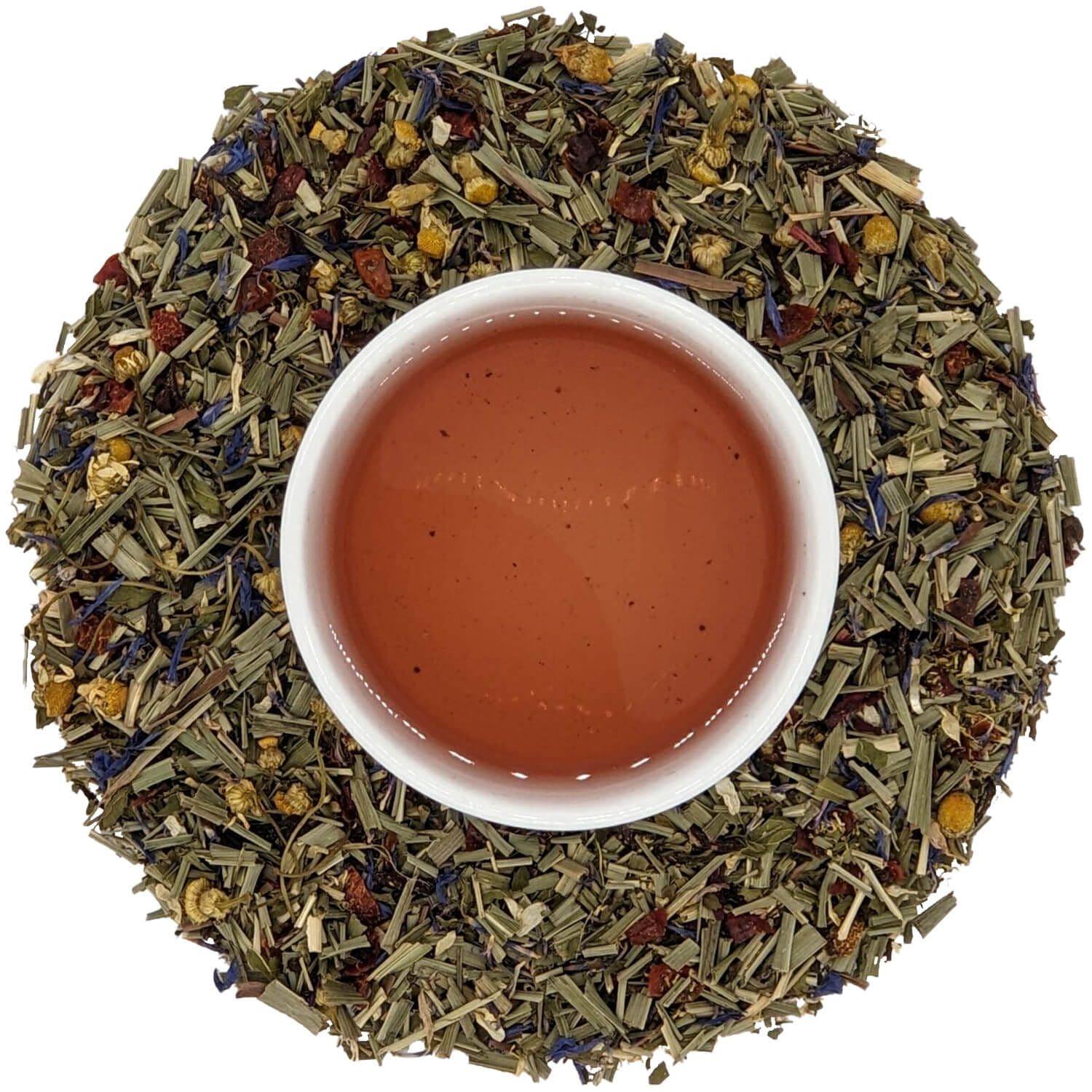Healthful Valerian Root Benefits
As a plant for the nervousness system, some of the valerian root benefits involve the act of calming nervousness and decreases blood pressure.
Valerian exerts different effects, depending on the living being it acts on: humans or animals. It serves as a strong stimulant for animals, but has notable sedative effects on human beings.
Valerian is a herbaceous plant native to Asia and Europe, but it is also found in North America. The roots of the plant are used for different purposes and give off a characteristic odor that many people find unpleasant.
The use of valerian root as medicine dates back to ancient Greece and Rome. At first, people treated migraines, fatigue, stomach cramps, and insomnia with valerian.
Currently, valerian is mainly used to treat insomnia, anxiety, premenstrual syndrome (PMS), menopause, depression, and headaches.
Valerian root is usually dried and then made into a tea, tincture, capsule or tablet. These forms of valerian root are available without a prescription at pharmacies, grocery stores, and online.

Valerian root supplements are very popular natural sleep aids and are commonly used in European countries like France, Germany, and Sweden.
In a survey conducted in the United States, more people reported using valerian root for sleep than taking melatonin.
In general, valerian root supplements are thought to produce fewer side effects than taking sedatives or sleeping pills.
YOU MAY LIKE: Benefits of Eating Oranges Everyday
Most studies on valerian root for sleep found that participants experienced no side effects or mild side effects at the same rate as the placebo groups. However, other studies have shown that valerian root may produce the following side effects in some people:
1. Headache
2. Stomach-ache
3. Uncomfortable feeling
4. Heart rate change
5. Insomnia
6. Dry mouth
7. Vivid dreams
8. Drowsiness
The effects of valerian root on a person may depend on the dose taken.
People can drink valerian tea to help treat:
1. Insomnia
2. Depression
3. Worry
4. Premenstrual syndrome
5. Menopause symptoms
6. Headache
Properties And Indications
Valerian root contains about 1% essential oil with antispasmodic effects with many components (terpenes, borneol esters, etc.) and from 1% to 5% valepotriates, the sedative effects of valerian.
Today, however, it is known that valerian’s most important agent is Baldrinal, a metabolite of valepotriat, known as valtrate.
Valerian has sedative, sedative, anesthetic, antispasmodic, analgesic and anticonvulsant effects.
It produces sedation across the entire autonomic and central nervous system, reducing anxiety as well as blood pressure. Its effect is quite similar to that of neuroleptic pharmaceuticals, but it does not have the following toxic effects.
Here are some signs related to valerian root
1. Autonomic nervous system disorders; anxiety, nervous disorder, irritability, neurasthenia, headache, palpitations, arrhythmia, high blood pressure with no physical cause, chills, stomach upset, i.e stress in the stomach, irritable bowel and other psychological ailments
2. Epilepsy: Taken regularly, it prevents seizures. However, it does not replace antiepileptic treatment, even if it is possible to reduce the dose.
3. Asthma: Valerian is more effective in preventing than treating acute asthma attacks, such as epilepsy. Its antispasmodic and sedative effects prevent bronchial asthma as well as mucous membrane edema.
4. Fatigue and nervous breakdown
5. Insomnia: Thanks to its addictive effect, it gives good results when the infusion is enhanced by bathing before bedtime.
6. Pain: Due to its analgesic effect, it is useful in the fight against sciatica and rheumatism. In addition, it has an external effect, applied to the affected area to relieve pain in cases of bruising, low back pain, sciatica, muscle tension and rheumatic pain.
A 2018 animal study indicates that people can also use valerian as a muscle relaxant. However, more research is needed before considering using valerian for this purpose.
Current research is insufficient to determine valerian’s effectiveness in treating any of the above conditions, and most reported evidence for its effectiveness is anecdotal or from large-scale studies.
A 2020 systematic review and meta-analysis found that the results of studies examining valerian’s effect on sleep were inconsistent. The authors suggested that the different results could be due to the different quality of the extracts used in each study.
The authors also suggest that supplements made from valerian root instead of the extract may have a more reliable effect.
Valerian Root Benefits

Internally, Valerian is a very calming and sedative herb for all emotional turmoil and pain. However, it irritates some people because the essential oil hasn’t been converted into valerian acid, the calming principle.)
For everyone, it will be irritating for some time until the oil changes.
1. Valerian is especially helpful in cases of emotional stress and pain. This is one of the valerian root benefits.
2. It is good for nervous disorders, migraine and insomnia as mentioned above.
3. Another one among the valerians root benefits that it is also useful for fatigue, low fever, cold colic, hysteria, neurasthenia and stones in the bladder, as an enema for pinworms and stomach cramps that cause vomiting.
4. The tea will relieve menstrual pain, intestinal spasms, stomach spasms, bronchospasm and muscle pain.
5. It is also used to relieve pain after childbirth, bloating, hangover, measles, paralysis, high blood pressure, irritable bowel syndrome, and ulcers. It reduces mucus caused by colds. These are all valerian root benefits you should know.
Valerian is widely used in many psychoactive herbal formulations. A popular bedtime tea for insomnia is ½ teaspoon of valerian root and ½ teaspoon of hops, steeped in a cup of hot water.
6. Externally, valerian can be used as a cleanser for boils and sores, and internally.
Valerian should not be boiled as this will destroy the essential oils. Hops have very similar properties and are interchangeable.
Preparation and Use
Internal Use
- Infusion: 15 – 20 g of ground root per liter of water. Drink up to five cups daily, sweeten with honey if preferred. For insomnia, drink a cup half an hour or one hour before going to bed.
- Cold extract: 100 g of root per liter of warm water. Let it stand for approximately 12 hours. Drink three or four cups daily.
- Root powder: Three or four times a day, an intake of 1 g.
External Use
- Warm water baths, with a sedative action, adding one or two liters of a decoction similar to that appropriate for compresses
- Compresses of a decoction made with 50 – 100 g of dry root per liter of water, boiled for 10 minutes. Apply when hot to the aching areas.
Preparation and Amount
- Decoction: Simmer 5 – 15 minutes. Take 3 oz. 3 times daily.
- Tincture: Take ½ – 1 teaspoon 3 times a day
- Fluid extract: Take ½ teaspoon, 3 times daily
- Oil: 5 drops 3 times a day
- Powder: Take 2 – 3 #0 capsules (10 – 15 grains) 3 times daily.
Warning
Large dose or extended use of valerian may produce symptoms of poisoning. Take the tea twice daily for no more than 2 weeks at a time. Large doses can bring on depression. Avoid combining it with alcohol.
Causes of Hypertension in Young Adults
Oligospermia Natural Treatment
Home Remedies for Motion Sickness
How To Live With HIV-Positive Person

A graduate of Computer Science and Information Management Technology. Diploma – Caregiving, Certificates – Dementia and Diabetes Awareness and Management. A researcher, blogger, songwriter, singer and acoustic guitarist. Born in an environment where natural talents such as healing are imparted at our natural birth. This natural talents of healing is the result of our genetic inheritance and the training from family environment.












